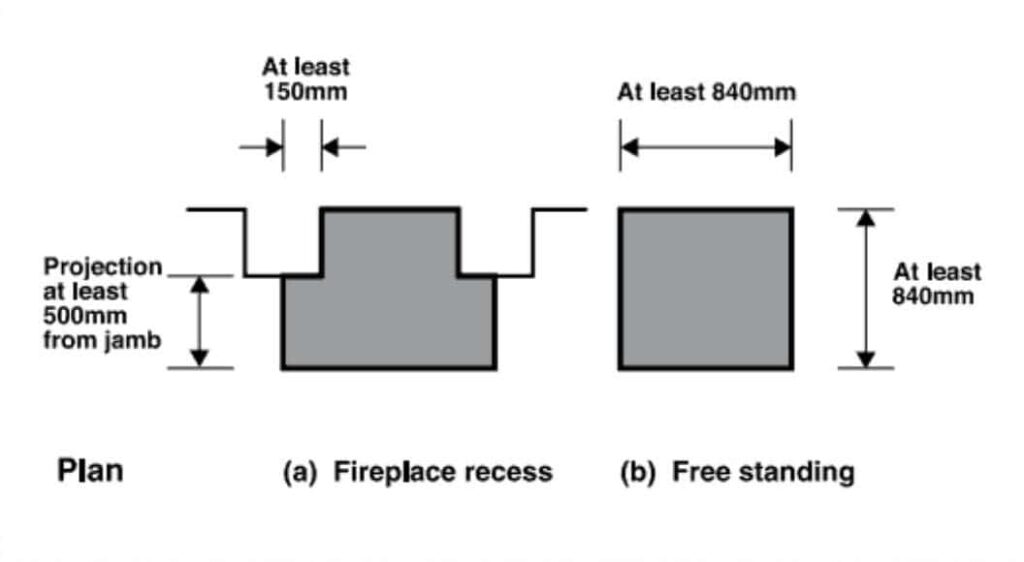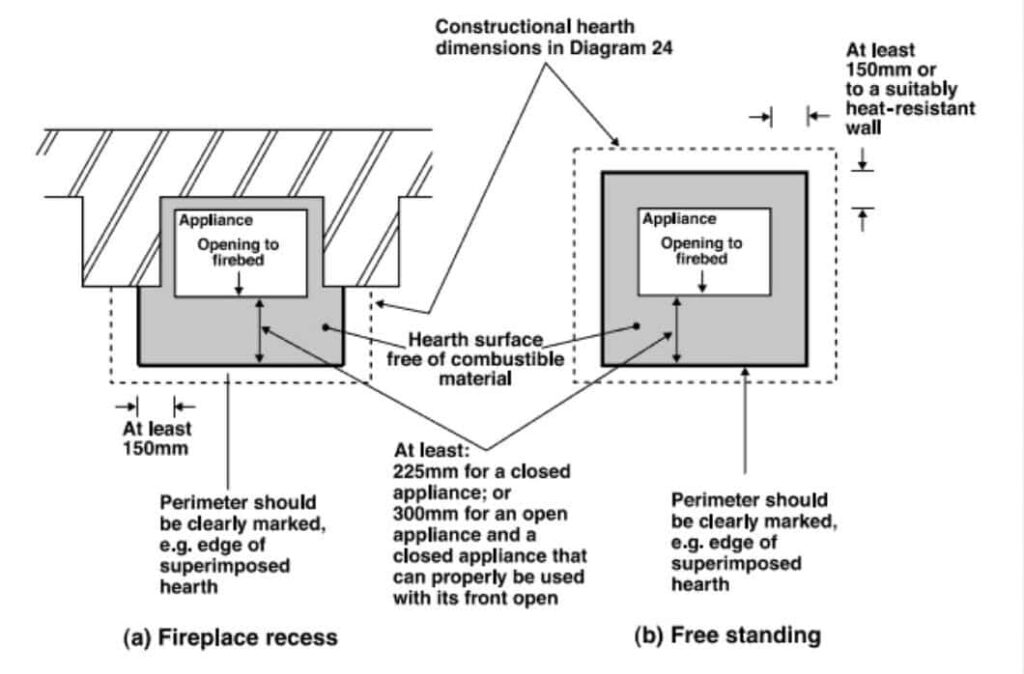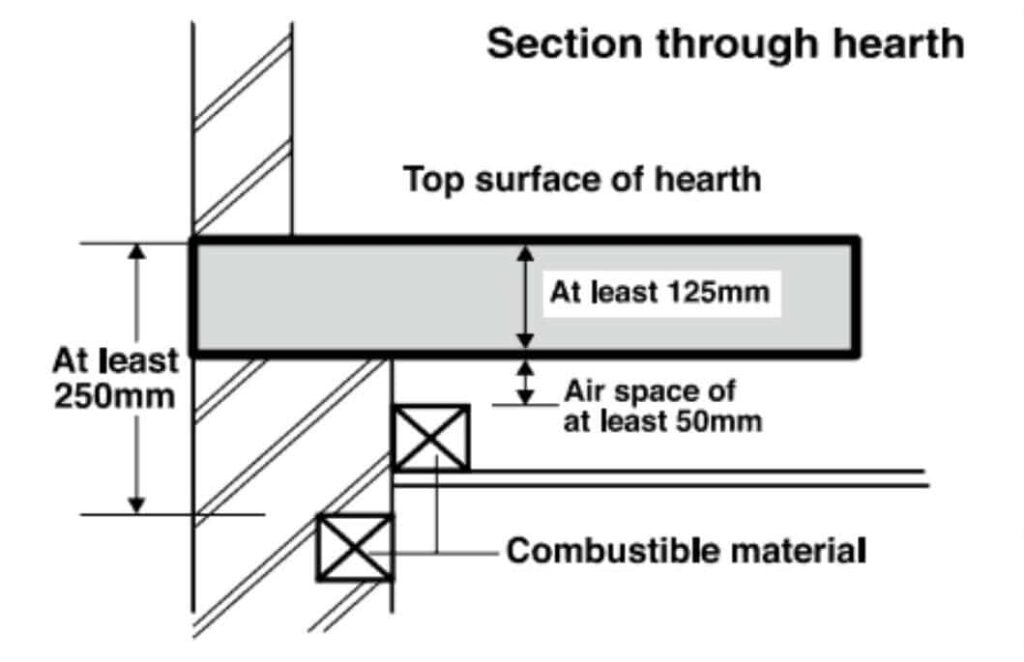
Indoor Fireplace Hearth Installation
Natural Stone and Porcelain Paving Guidance
ALL STOVES SHOULD SIT ON A SLAB OF NON-COMBUSTIBLE MATERIAL CALLED A HEARTH, THIS WILL PROTECT ANY COMBUSTIBLE MATERIALS UNDERNEATH AND AROUND THE STOVE FROM HEAT PRODUCED BY THE STOVE AND ANY FALLING BURNING FUEL. THE PERIMETER OF THE HEARTH SHOULD BE CLEARLY DEFINED BY EITHER USING A RAISED EDGE OR BY RAISING THE LEVEL OF THE HEARTH IN RELATION TO THE SURROUNDING FLOOR. BELOW SHOWS BUILDING REGULATION GUIDANCE ON INSTALLING FIREPLACE HEARTHS AND THE LEGAL REQUIREMENTS.
The material used for fireplace hearths must be made from a noncombustible material so most natural stone materials will be suitable, but it is very important that natural stone is only suitable for stove installation. Open fires that come in contact with the surface of the stone will cause major damage to the installation and will eventually result in complete failure of the Natural stone hearth.
SIZE OF FIREPLACE HEARTHS
It Is important that the hearth you are installing is big enough to meet the requirements of your stove, fires are extremely rare but falling fuel that can roll out of the stove is very common and you need to ensure you are adequately protected.
This diagram shows the correct size of the hearth at the start of installation.
For a freestanding stove (not in a recess) the hearth should be at least of 840mm x 840mm but often a large size will be quired to home larger stoves.

UK Building Control hearth size suitable for solid fuel open fires
STOVE POSITIONING
Building Regulations state that fireplace hearths must extend at least 150mm to the side of a fire bed and at least 300mm outwards into the room for an open appliance. For closed appliances the 300mm can be reduced to 225mm.

HEARTH THICKNESS
Hearths must be at least 12mm thick when temperatures on the surface of the hearth will not exceed 100 Degrees Celsius. When temperatures reach over 100, the hearth must be at least 125mm thick if there is at least a 50mm gap underneath the hearth, or at least 250mm thick if it is located on a combustible floor, please see building regulation diagram below.

The thickness can be included as part of a solid concrete floor slab or beam and block concrete floor, while smaller stoves with lower operating temperatures can be of glass or thinner decorative materials.
UK Building Control hearth depth suitable for solid fuel open fires.
BE SURE TO CHECK WITH A PROFESSIONAL WHAT DEPTH OF HEARTH IS REQUIRED FOR YOUR PARTICULAR LOCATION AND FIREPLACE SITUATION.
IF YOU NEED ANY ADVICE PLEASE CONTACT A MEMBER OF STAFF AT YOUR LOCAL DEPOT, ON ONE OF THE NUMBERS BELOW, WHO WILL BE HAPPY TO ADVISE YOU ON ANY OF OUR PRODUCTS.

